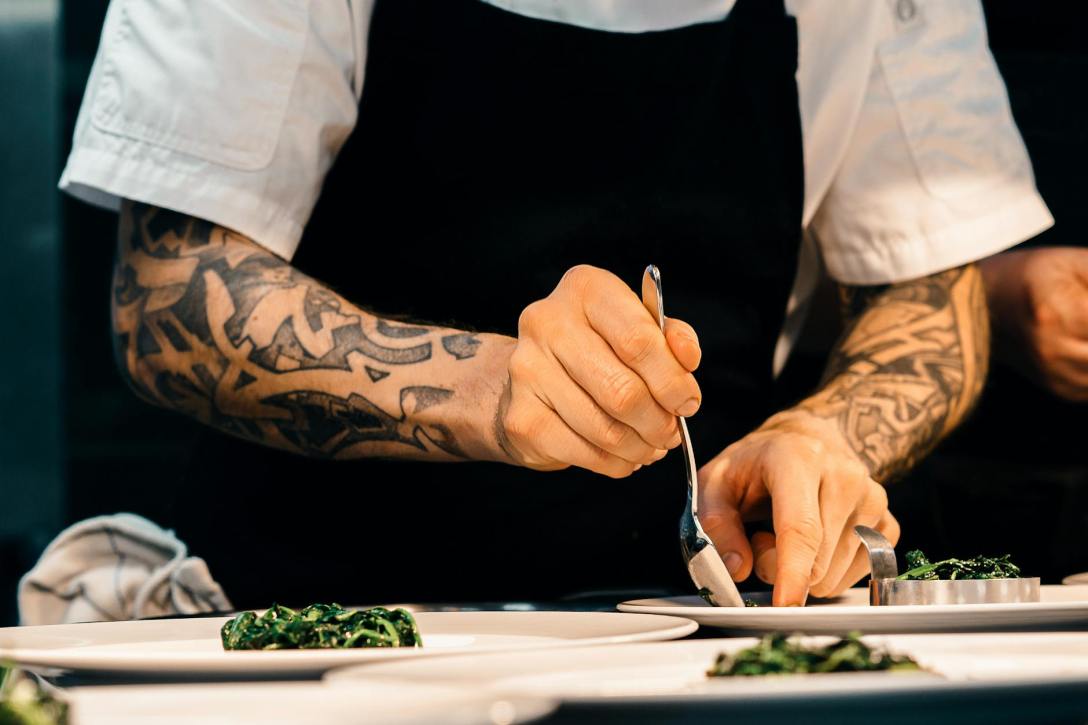When we learned in 2018 that Anthony Bourdain had passed, my husband and I were shocked. We had watched his show, Parts Unknown, for years and felt like he was our good friend.
Maybe he was a bit rough around the edges, but he brought out the best in each area he visited and each person he talked and ate with. After watching one of his shows, we wouldn’t just feel inspired (and hungry) but somehow more human.
It felt so wrong that this man who uncovered life wherever he went would take his own.
Reading Bourdain’s Kitchen Confidential was like listening to a ghost, making me miss Bourdain again. Halfway through the book, he writes, “I’m still here. And I’m surprised by that. Every day.”1 We wish you were still here.
In honor of Bourdain, I’m sharing my favorite metaphors from his book. He knows how to encapsulate an idea in a crazy string of words, and these had me reaching for my pen and notebook.
Flying Dutchman
Context: Bourdain has made his big break as a chef and is earning a bunch of money. However, he is working in failing restaurants and chasing away the sense of disappointment with alcohol and drugs.
Quote: “I had to get it together. I’d been the culinary equivalent of the Flying Dutchman too long, living a half-life with no future in mind, just oozing from sensation to sensation (p.152).”1
Unpack: If you’re not into Pirates of the Caribbean or pirate lore, the Flying Dutchman is a ghost ship doomed to sail forever and never touch port. Bourdain sees himself similarly, going from high to high but never really experiencing life.
Drano enema
Context: Bourdain describes a day as head chef at Les Halles, a steakhouse in New York City. We follow him as he adjusts the menu, checks in with his staff, and moves through the complicated minutia of heading a large, fancy restaurant. This quote is from the middle of the dinner rush.
Quote: “We were in the eerie, eye-of-the-hurricane calm. In ten minutes, when the next wave of hungry public had been seated and breaded and watered, there’d be a punishing rush—the slide filling up with orders all at once, the action swinging from station to station, boiling up the line like a Drano enema (p.219).”1
Unpack: I remember the first time I used Drano to unclog a bathtub drain from the build-up of all my curly hair. The resulting smooth flow of water was magical. I also remember my first time helping someone with an enema, but I’ll spare you those details. Combine Drano with enema, and we’ve got a powerful but unsettling visual.
Atomic perfection
Context: This is part of a chapter on another of Bourdain’s colorful, unreliable, but ultimately irreplaceable kitchen characters. This friend may not show up for work but bakes such good bread that the chefs fight over him anyway.
Quote: “His peasant-style boules are the perfect objects, an arrangement of atoms unimprovable by God or man, pleasing to all the senses at once. Cézanne would have wanted to paint them—but might not have considered himself up to the job (p.236).”1
Unpack: I would probably have stopped this quote with ‘Cezanne wouldn’t have done them justice.’ I love that Bourdain goes one step further and says that Cezanne would have considered himself unworthy of capturing the essence of these heavenly loaves. The boules were just that good.
The magic of food & opening up
Almost everyone loves food in some way. I remember sitting next to a notoriously picky eater at a gathering and hearing him yell, “Yum, hotdog!” at his plate. Even if a person’s selection of beloved foods is limited, eating is still a fundamentally satisfying activity that can lift us out of a funk.
Bourdain catches that feeling well in this last quote:
It’s a gaze of wonder: the same look you see on small children’s faces when their fathers take them into deep water at the beach, and it’s always a beautiful thing. For a moment, or a second, the pinched expressions of the cynical, world-weary, throat-cutting, miserable b*stards we’ve all had to become disappears, when we’re confronted with something as simple as a plate of food. When we remember what it was that moved us down this road in the first place (p.298).1
What made Bourdain so special?
I think it was that he talked so openly about his darker side. He owned the fact that he was a miserable b*stard, something many of us never admit to ourselves, much less to the camera or the page. He wasn’t afraid to bring the depths of his soul to light, like author Arthur Baldwin says, which is the hard work we must do to keep light in our lives.
Like sea salt on chocolate ice cream, Bourdain’s dark side made the goodness of his simple love for people that much sweeter. We miss him.
1Bourdain, Anthony. Kitchen Confidential. Ecco, 2007.
